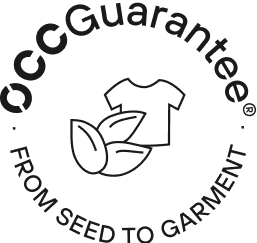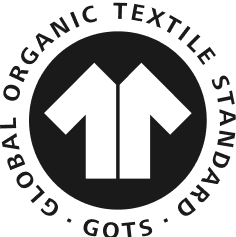- 18 January, 2024
By Santi Mallorquí, CEO of Organic Cotton Colours.
In this fourth chapter, I continue recounting our first trip to Brazil. Now it’s time to meet the farmers, the new stakeholders of OCC…
Farmers, the New Stakeholders of OCC
We wanted the farmers to feel a connection with us that went beyond a buyer and seller relationship. It was about showing them that they were part of the project as much as we were. They needed to become our “stakeholders” in the field. Their story added value to the project, and beyond cotton, Organic Cotton Colours was committed to the families working on it.
My goal with the project in Brazil was always to create a circular economy business where, in addition to generating profitable activity, the people involved would see improvements in their social, economic, and working conditions, along with improvements in the environmental health of the region.
Over the next 6 months, we organized a meeting where all stakeholders would participate. Farmers from 5 states in the northeast (Piauí, Rio Grande do Norte, Ceará, Paraíba, and Pernambuco) belonging to the so-called Rede and grouped in more than 6 cooperatives (a total of over 450 farmers), 3 members of Embrapa, NGOs, government support organizations, and local journalists.
In early February 2014, I traveled to Brazil again to hold a meeting with all of them. This time accompanied by Joaquim Barbosa, our team member in Portugal, with whom I have a close trust relationship, and Ángel Sánchez, who could not miss the beginning of this new project. Despite his delicate health at that time, I was sure he would give everything to witness this key development in the future of the company he founded. Five months after the trip, in July 2014, after many years of struggle, Ángel passed away.
In Brazil, we spent two days meeting, working to lay the foundations for the future OCCGuarantee project of Organic Cotton Colours in which each person would have a place.
This last trip was the beginning of OCCGuarantee as a business model and commitment of Organic Cotton Colours. We built the groundwork for how we wanted the relationship to be structured. Despite that, I still felt lost about how to manage the project remotely. I knew that success depended on having someone in Brazil actively involved in the group’s development.
From the meetings we had in Brazil, there were two key people to whom I am ever grateful for their unconditional support. Fabio Aquino, responsible for Embrapa, and Pedro Georges, father of the Agroecological Network of the Northeast and president of the Esplar cooperative in Ceará have been selflessly committed since day one.


Diogenes, the Missing Piece
In the search for the profile we needed to lead OCC in Brazil, there was a huge consensus. The perfect candidate was one of the people present at the Rede meeting. Diógenes Fernandes, son of farmers, who was working at that time for a non-governmental organization (NGO) and had experience in dealing with groups of farmers.
The problem was that at that moment he was returning to work after two years of intense recovery from a motorcycle accident. Even today, we laugh when we remember the moment I proposed that he be part of the project. He didn’t make it easy for me, but finally, he agreed, even though we never discussed the compensation he would receive.

My next trip to Brazil was in May of the same year. I went to visit some of the farmers and see how our proposal was evolving. It was then that I was informed that the Government had withdrawn public funds from the Dom Helder Camara project. This organization assisted and financed almost all the families of farmers who were part of the OCCGuarantee project and ensured the channels through which they could communicate as an association. Once the funds were withdrawn, the families were isolated and without communication.

We were definitely on the right path, but for now, we couldn’t find the appropriate way.
In August 2014, already with Diogenes working for OCC, I returned to Brazil… And what happened, I’ll tell you in chapter five.







